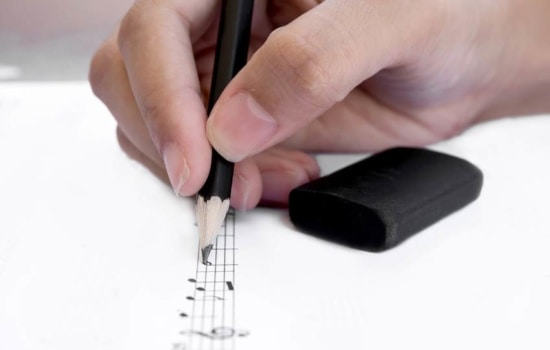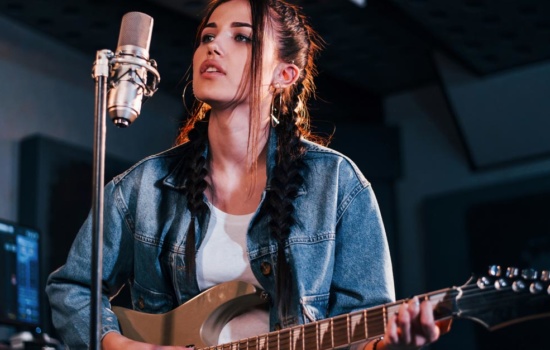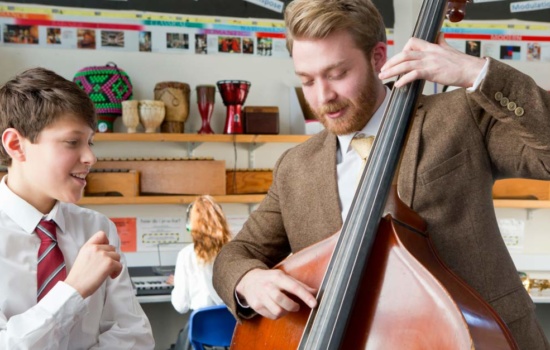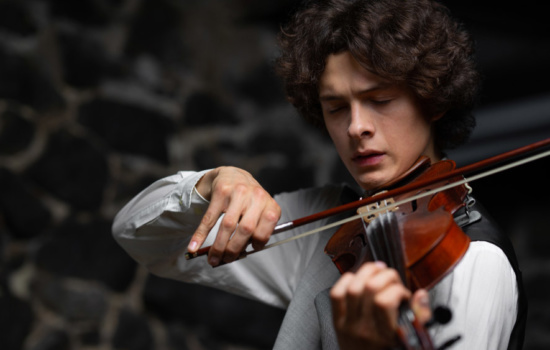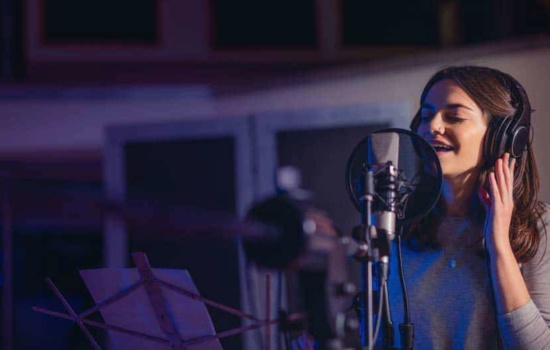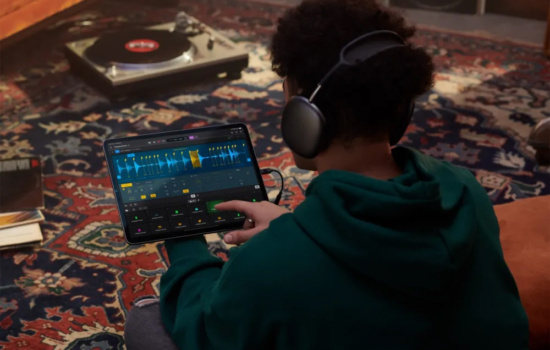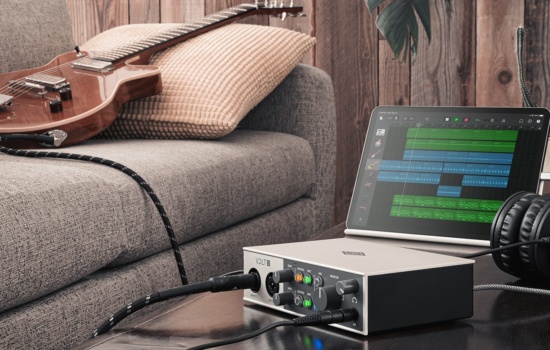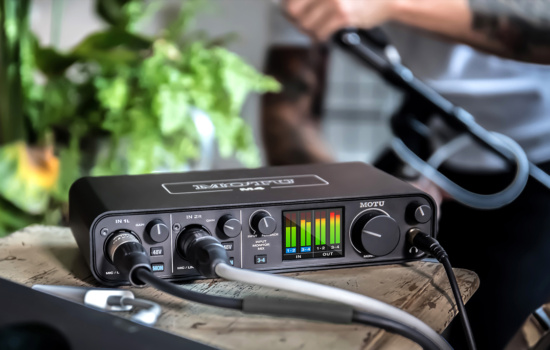Before we dive into the steps you can use to write lyrics, let’s cover a few things that every songwriter should do first.
Writing Lyrics: How To Write Song Lyrics You’re Happier With

People also ask
Writing lyrics is hard.
Every songwriter agrees. You want to write lyrics that change people’s lives, but you end up writing garbage (or so you tell yourself). So this post will walk you through some tips and steps on how to write lyrics. Hopefully, this will help you write lyrics you’re happier with.
Before You Start Writing Lyrics…
Familiarize yourself with the parts of a song
Songwriting has no rules, but if you’re having trouble writing lyrics, it can help to know the parts of the song. Here’s a quick refresher:
- Intro
- Verses
- Chorus
- Bridge
- Outro
For an in-depth look at the parts of a song, check out this guide.
Are there any rules for songwriting?
Are there “rules” when it comes to songwriting? No, of course not! This is art, not math or science! There aren’t any actual, official rules songwriters must follow, though there are plenty of traditions and best practices that some may refer to as rules. These are tips and tricks that have worked countless times for a plethora of artists, so many rely on them as if they were rules. Structures, melodies, notes, rhyme schemes…these are all examples of “rules” that the most successful songwriters employ when crafting hits, so while nobody needs to adhere to them, they should be learned and kept in mind whenever anyone is writing a tune for public consumption.
Here are a few examples of some songwriting “rules” (which, again, aren’t really rules) according to SoundFly:
- Follow A Tried-And-True Structure – The vast majority of songs–and almost all hits–follow the same structure, so shouldn’t you?
- Keep Your Verses Consistent – Whatever structure you decide to go with, just stick with one for each song. So, if verse one employs a specific rhyming pattern, the others shouldn’t differ.
- Repeat Your Choruses – Similar to your verses, you want to keep your choruses the same…only this time, I really mean the same. Use the exact wording in each instance you write a chorus, though once you’re a bit more familiar with songwriting, you can play with this “rule” slightly.
- The Same Tempo & Key and Chord Progressions – Consistency is a fantastic way to make any song more pleasing to the average listener. Just as you want to stick with one structure and the same chorus, you should make sure your tempo and both key and chord progressions (you can research those terms if you don’t know what they mean) are never-changing.
- Rhyme – Yes, this has to be said! Sometimes, skilled songwriters with years of experience can get away with verses or even chrouses that don’t rhyme, but this isn’t to be tried when you’re just starting out.
Study your favorite songs
Pull up the lyrics of your favorite songs and just read the words. Why do you like them? What kind of analogies, metaphors, similes, or stories do they use? Take what you learn into your own writing.
How do you write a song for beginners?
Try these tips for writing lyrics: 1) free write (no editing yourself) for 5 minutes, 2) start with the song title, 3) re-write someone else’s song, 4) tell a story, 5) write like you speak, and 6) stay authentic.
Read these books
There are two books I think every songwriter should read: Songwriters On Songwriting and More Songwriters On Songwriting, both by Paul Zollo. It’s a collection of 50+ interviews with some of the greatest songwriters in modern music.
Is writing lyrics a hobby?
For most songwriters, yes writing lyrics is a hobby. For some songwriters, it becomes their career, whether as an artist or a songwriter who writes for artists. But even the songwriters who do it for a living still enjoy writing lyrics.
5 Steps for Writing Lyrics
Writing lyrics is a totally subjective practice. So I’m not going to say “THIS is how you HAVE to write lyrics.” But just to make things simple, here are five steps you can follow and see if it leads to lyrics you’re happier with.
Can a 14 year old write a song?
Of course! You don’t even need an instrument – you can write a song with just your voice, a melody, and lyrics.
1. Do stream-of-consciousness writing
This is one of the most helpful exercises for getting lyrics out, especially if you’re feeling stuck. Stream-of-consciousness writing is when you write non-stop for a set amount of time, like 3-5 minutes. I like doing this on my computer because I can type way faster than I can write by hand. I just write without thinking, even if it’s gibberish. Once the time is up, I look through what I just wrote for song ideas, titles, and lyrics.
2. Find the title
The title is kind of like the thesis of your song. Every lyrics points to the title, so it helps guide you as you write. So finding the title can really help you discover what your song is about.
3. Write the chorus
The chorus (or the hook) is the the most memorable part of your song, and it encapsulates what the song as a whole is about. So it’s a good idea to write the chorus before you write the other parts of the song. The chorus needs to be the strongest part of the song, so it’s best you nail it before writing the verses.
How do you write a verse in a lyrics?
The verses typically support the chorus, meaning they support the idea of the song. But you can approach writing verses in many ways. They often tell a story while the chorus talks about the lesson from the story. Or they can paint the opposite picture of the chorus to make the chorus stand out more. A verse can take many forms!
Do songwriters need to sing?
No! In fact, there are thousands of professional songwriters who make their living penning tunes for others without singing a single note on their own. Some people wanted (or still want) to perform, but things didn’t quite work out that way, so now they’re songwriters. Many others never aspired to be the ones on the stage, but they do love making music. These days, most, if not all of the most successful stars are also co-writers on their own tracks, but take a look at the liner notes and credits on an album by a chart-topper and you’ll see quite a lot of unfamiliar names. Those are all songwriters, and few of them have singing careers of their own.
4. Structure the song
Once you’ve got a great chorus, it’s time to structure the rest of the song. Try outlining the song so your verses lead up to or point to the chorus in some way. Start writing verse one, then verse two, then see if you feel like the song needs a third verse, bridge, tag, or an outro.
5. Let it sit for a day
After you’ve written a draft of the song and recorded at least a voice memo of it, let it sit for a day or two. Then come back to it with fresh ears and just listen to it. Take notice of what sticks out to you as not working or what could be stronger. Then edit and revise the lyrics.
Hey, what do you think about trying our new Music Career HelperMusic Career Helper really quick? It’s totally free and could help get your career moving fast! Give it a try. It’s totally free and you have nothing to lose.
Tips for Writing Lyrics
As you work through the above steps for writing lyrics, below are some general tips that could help you. These are tips that have helped me write lyrics I’m happier with.
Re-write someone else’s song
This is one of my favorite methods for finding songs. Look at the lyrics of a song I like, rewrite them in a way I would say them, then put them to entirely new music. Try and this and what you’ll end up with won’t sound like the original, it will sound like you.
How do songwriters get paid?
This is a complicated question to answer, and an entire article could be written on this topic (and many have). Any song you’ve written can generate revenue via a number of different avenues, such as when it’s recorded by a singer, when it’s played on the radio, streamed on Spotify, used in an ad, and many, many more. What every songwriter needs, though, are two things: a publisher, and a PRO.
Here’s what copyright.gov has to say about music publishers:
“Songwriters partner with music publishers to help get paid for the use of their songs. Music publishers can license a songwriter’s works, register the songwriter’s songs with performance and mechanical rights organizations, monitor use of the works, and collect and distribute royalties. These music publishing licenses can include using musical works in sheet music, in recorded music, in commercials, television and movies, video games, bars and restaurants, and many other possibilities. Publishers may also help a songwriter with other matters, including advances, securing commercial recordings of the songwriter’s music with recording artists, providing career advice, and enforcing the songwriter’s rights when their works are infringed.”
Some artists join a publishing company, while others found their own. Whichever way they go, they’ll also almost certainly need to partner with a performing rights organization, or PRO, as they’re known in the business. Here’s a bit more about those groups–the most popular being ASCAP, BMI, and SESAC–from the same source:
“PROs help both songwriters and publishers by licensing, on a non-exclusive basis, musical works’ public performance rights. PROs most commonly bundle performance rights from different songwriters and license all of those rights together to AM/FM radio stations, television, streaming services, bars and restaurants, arenas, and to other users who want to publicly perform musical works. For a songwriter or publisher to get paid by a PRO, they must sign an agreement that allows the PRO to license their musical works (or musical work share) and collect and distribute that share of musical work performance royalties. PROs typically pay songwriters and publishers their royalties directly, as opposed to the publisher collecting the full amount of royalties and then paying the songwriter.”
Re-write one of your old songs
Steal from yourself. Look at your old songs and, like most songwriters, you won’t be 100% witht them as a whole. So you can take the bits and pieces you like and put them into your new song. No one will ever know but you.
Focus on the story
Humans get pulled in by stories. So try just telling a story in your lyrics. You can write out a story as if you were writing part of a book. Then rearrange the lyrics to fit your song’s structure and consider making the lines rhyme. Boom, you’ve got a song.
Write like you speak
You and any potential listeners may connect with your lyrics easier if you write like you speak. It’s easy to try really hard to sound poetic. But that can end up sounding fake, and it can make it harder for the lyrics to resonate.
Be authentic
In Songwriters On Songwriting, Paul Simon has some words about writing authentic lyrics.
“The only thought that I give to it is: ‘Is that something that I really believe?’” he said. “It doesn’t have to be insightful or anything. It just has to be not a lie. I can’t say, ‘I’m setting out to write a really deep, philosophical song.’ I would never say that. I have no idea.”
Stay Consistent
The key to getting better at writing lyrics is to keep doing it. Songwriting is a muscle. It’s a craft. You have to do it in order to get better at it.
So I’d suggest putting yourself on a schedule. Even if you only have 20 minutes in the evening to write, then write. Small steps are better than standing still.
And to be honest, if you really love songwriting, you don’t need my external motivation. If you’re really a songwriter, you’ll have an internal drive that will have you collecting things you can then put into songs.
Just don’t forget your love of songwriting.



